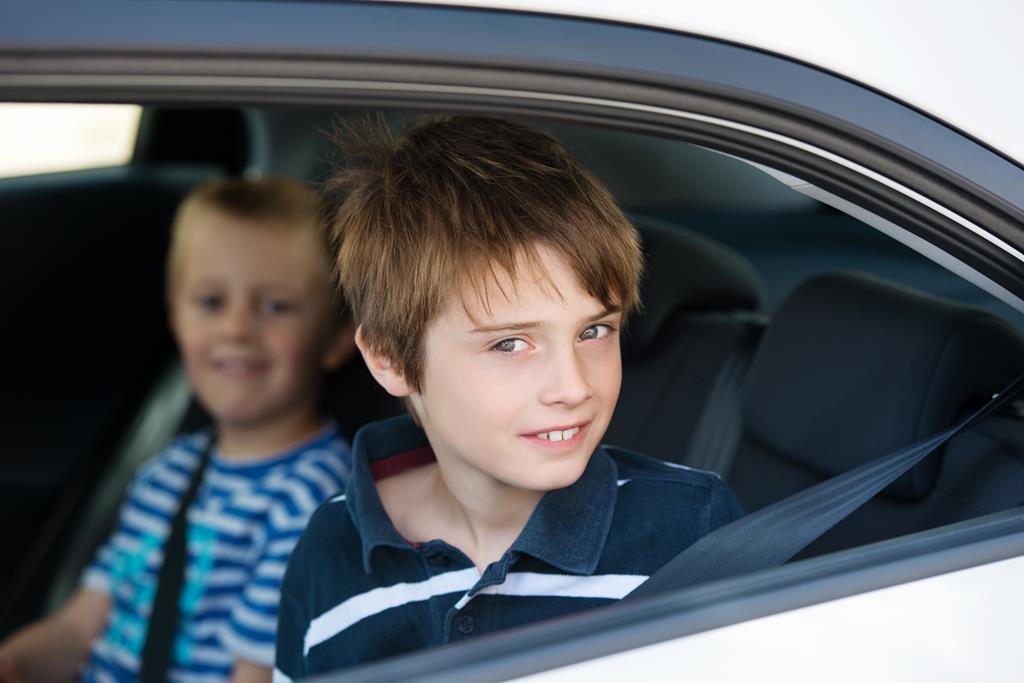Traveling by car with children can be both rewarding and challenging. Many parents face common concerns when planning family road trips:
- How do you keep children entertained during long car rides?
- What strategies work best when traveling with multiple children?
- Which foods are safest and most practical for family road trips?
- How do you handle motion sickness and other travel-related issues?
With proper planning and preparation, these challenges become manageable. This comprehensive guide will help parents create safe, enjoyable, and stress-free family car trips.
Car Safety Tips for Traveling with Children
Safety should always be your top priority when traveling with children. Infants and toddlers must be secured in appropriate car seats, while older children require proper booster seats or seat belts. Consistent monitoring throughout the journey ensures all safety requirements are met.
Climate control is crucial for children’s comfort and safety. Maintain proper temperature, avoid drafts, and never leave windows fully open. Remember that younger children need more frequent stops, while infants primarily need their caregiver’s attention and typically sleep during most of the journey.
Essential car safety precautions include:
- Secure all heavy, bulky, or glass objects to prevent them from becoming projectiles
- Keep the car interior organized and clutter-free
- Ensure child safety locks are activated on rear doors
- Maintain clear visibility of children in rear seats through mirrors
- Never leave children unattended in the vehicle, even during brief stops
Keeping Children Active and Engaged During Road Trips
Extended periods of sitting can be physically and mentally challenging for children. Regular activity breaks are essential for their comfort and well-being. Plan stops every 1-2 hours to allow children to stretch, move, and release energy.
Best locations for family travel stops:
- Public playgrounds with safe equipment
- Rest areas with open spaces for running
- Parks or recreational areas with walking trails
- Beach or lake areas for outdoor play
Recommended travel activities and supplies:
- Portable sports equipment: balls, jump ropes, frisbees
- Interactive games for different age groups
- Books, tablets, or portable entertainment devices
- Drawing materials: magnetic drawing boards, coloring books
- Comfort items: travel pillows, small blankets, favorite toys
Typically, 30 minutes of physical activity is sufficient to tire children enough for them to rest comfortably during the next leg of the journey. Combining physical activity with meal times creates natural transition periods that help maintain a peaceful travel rhythm.

Maintaining Hygiene and Cleanliness During Family Travel
Keeping children clean and healthy during car travel requires advance preparation and the right supplies. While rest stops provide the best opportunities for thorough hygiene maintenance, you’ll also need to handle cleanliness needs while on the road.
Essential hygiene supplies for car travel:
- Disposable wet wipes for quick cleanups
- Hand sanitizer appropriate for children
- Extra diapers and changing supplies for infants
- Protective seat covers or disposable seat protectors
- Tissues and napkins for spills and messes
- Plastic bags for storing dirty clothes or trash
For older children and teenagers, simple reminders about hand washing and basic hygiene practices are usually sufficient. Encourage regular handwashing at rest stops, especially before meals.
Healthy Food and Snack Ideas for Family Road Trips
Proper nutrition during family car travel requires careful planning. Infants on formula or mixed feeding need their regular feeding schedule maintained. For all children, avoid fast food restaurants and focus on fresh, healthy options that travel well.
Recommended travel foods and snacks:
- Fresh fruits: apples, bananas, grapes (pre-washed and cut)
- Vegetables: carrot sticks, cucumber slices, cherry tomatoes
- Protein-rich snacks: cheese sticks, hard-boiled eggs, nuts (age-appropriate)
- Whole grain crackers and sandwiches
- Plenty of water in spill-proof containers
Foods and drinks to avoid during car travel:
- Heavily processed or fried foods
- Smoked or pickled foods that may cause nausea
- Sugary sodas and carbonated beverages
- Foods with strong odors
- Anything that requires complex preparation while traveling
Practical meal tips for car travel:
- Use thermos containers to keep food at proper temperatures
- Pack disposable plates, cups, and utensils
- Bring sippy cups and drinking straws for younger children
- Allow 10-15 minutes of rest after meals before resuming travel
- Keep motion sickness remedies available if needed
Managing Entertainment and Noise Levels
Creating a peaceful environment for family car travel requires thoughtful consideration of entertainment and noise management. Music preferences can significantly impact children’s mood, sleep patterns, and overall comfort during the journey.
Best practices for in-car entertainment:
- Discuss music preferences and volume limits before departure
- Consider child-friendly playlists or audiobooks
- Use headphones for individual entertainment when possible
- Plan quiet times for rest and sleep
- Rotate entertainment options to prevent boredom
Benefits of Family Car Travel
Despite the challenges, family car travel offers numerous advantages that make the extra planning worthwhile. Many parents discover these benefits after their first successful road trip with children.
Key advantages of traveling by car with children:
- Complete independence from public transportation schedules
- Privacy and comfort without concerns about disturbing other passengers
- Cost-effectiveness compared to multiple airline or train tickets
- Flexibility to stop whenever needed for breaks or sightseeing
- Ability to pack all necessary supplies without baggage restrictions

Important Considerations and Final Tips
While family car travel offers many benefits, responsible parents must acknowledge potential risks including accidents, unexpected illnesses, or mechanical problems. Only undertake extended car travel with children when you’re confident in your ability to handle various situations that may arise.
Essential preparations for international family travel:
- Obtain international driving permits before traveling abroad
- Research local traffic laws and child safety requirements
- Ensure proper travel insurance coverage for the entire family
- Pack emergency contact information and important documents
- Plan your route with child-friendly stops and accommodations
Remember that successful family car travel is entirely possible with proper planning, safety precautions, and realistic expectations. Your children’s safety and comfort should always remain the top priority, but with thoughtful preparation, car travel can create wonderful family memories and adventures.

Published September 11, 2017 • 6m to read





